1. Oversized Sheds or Outbuildings
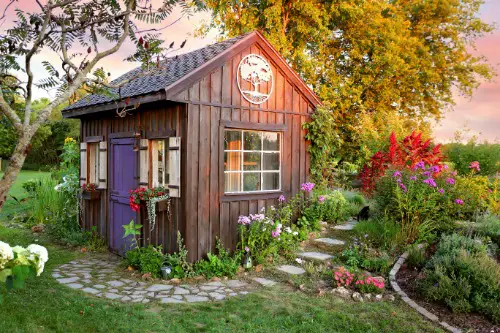
Many HOAs limit the size, location, and style of sheds, garages, or other outbuildings. If you plop down a giant workshop in your backyard without approval, it could violate zoning and HOA standards at the same time. These rules are often in place to prevent structures from obstructing neighbors’ views or clashing with the overall design. If you ignore repeated violation notices, your HOA could pursue eviction proceedings.
Sheds are seen as permanent or semi-permanent features, so they’re more regulated than people expect. Even portable sheds can be considered a violation if they’re too large or visible from the street. HOAs may also object to certain materials, like corrugated metal, for aesthetic reasons. Before adding any kind of outbuilding, a quick email to the HOA could save you from a costly removal order.
2. Unapproved Fences
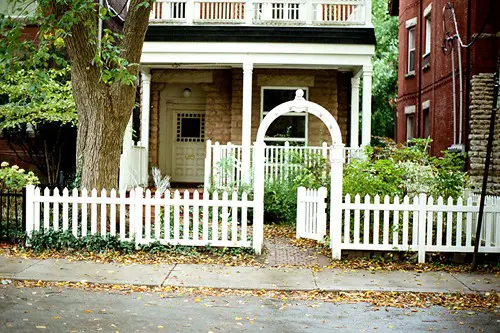
Many HOAs have strict rules about the height, style, and even color of fences. A rustic wooden fence might feel charming to you, but if the community rules only allow wrought iron, that could be a violation. Some HOAs require you to submit a request before installing or replacing fencing, and skipping that step can get you in trouble. In extreme cases, refusal to comply after warnings could escalate to legal action or even eviction.
The reason HOAs are picky about fences is that they want a consistent look across the neighborhood. A fence that blocks views or clashes with the design standards can affect property values. In communities where uniformity is a selling point, this kind of change isn’t taken lightly. If you’re in an HOA, it’s best to double-check every detail before you dig that first posthole.
3. Unauthorized Pools
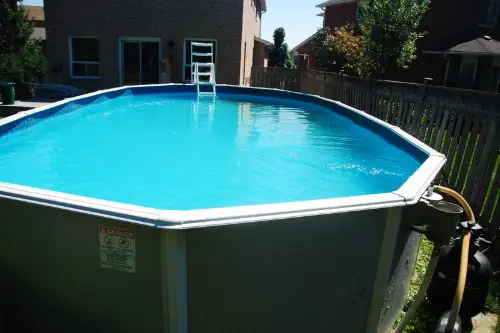
Installing a pool without HOA permission is one of the fastest ways to rack up violations. Some HOAs ban in-ground pools entirely, while others have detailed requirements for safety fencing, landscaping, and placement. Adding a pool without approval can trigger fines, legal disputes, and potential eviction. These rules aren’t just about looks — they’re often about liability.
If someone is injured in your unapproved pool, the HOA might be dragged into a lawsuit, which is why they care so much. Above-ground pools can also be restricted, especially if they’re visible from common areas. Some HOAs even regulate inflatable pools during summer months. Skipping the paperwork can make your dream pool an expensive nightmare.
4. Non-Approved Exterior Paint Colors

That bold turquoise you’ve always loved might look great to you, but it could get you in serious trouble with your HOA. Many associations have a palette of pre-approved colors for home exteriors. Painting your house outside of those choices can be considered a major violation. If you refuse to repaint, legal escalation is a real possibility.
HOAs enforce color rules to maintain a cohesive neighborhood appearance. They argue it protects property values and keeps the community “marketable.” Even if you think your color is tasteful, if it’s not on the list, it’s a problem. It’s one of those situations where asking permission really is better than asking forgiveness.
5. Improperly Parked RVs or Boats

Keeping an RV or boat in your driveway or yard might feel harmless, but many HOAs strictly forbid it. The rule often extends to trailers, campers, and oversized vehicles. These restrictions are meant to keep streets and driveways uncluttered. Ignoring the rule after warnings can be grounds for eviction in strict communities.
Some HOAs allow temporary parking for loading or unloading but require you to store the vehicle elsewhere. Others even have agreements with offsite storage facilities for residents. The concern is partly aesthetic and partly about safety and visibility. If you own a large recreational vehicle, know your HOA’s rules before parking it at home.
6. Clotheslines in Visible Areas
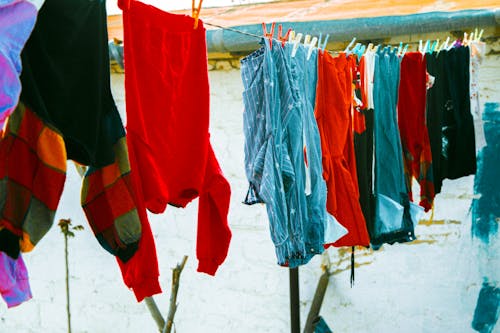
In some neighborhoods, HOAs consider clotheslines unsightly. They might allow them only in backyards hidden from view or ban them altogether. This can be frustrating for homeowners who want to air-dry clothes to save energy. Still, violating this rule repeatedly could put you at risk for eviction.
The reasoning often comes down to maintaining a certain “curb appeal” standard. While some states have “right-to-dry” laws that override HOA bans, others don’t. If your HOA’s restrictions are enforceable, you could be required to remove the clothesline immediately. It’s a surprisingly contentious topic for such a simple piece of rope.
7. Overgrown Lawns or Gardens
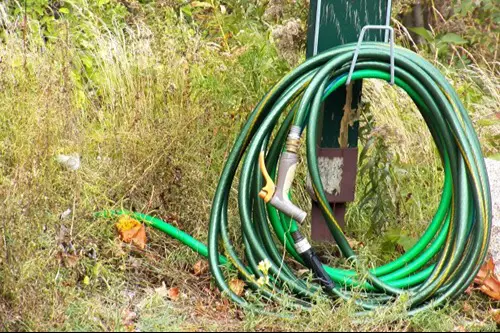
If your lawn looks like a scene from a nature documentary, your HOA may not be impressed. Most associations have rules about grass height, weed control, and overall yard upkeep. Neglecting maintenance after repeated notices can trigger fines and even legal action. In very strict HOAs, persistent non-compliance could escalate to eviction.
The main reason is that overgrown yards can drag down surrounding property values. They can also attract pests and give the impression of abandonment. Some HOAs even have lawn services they’ll hire on your behalf and then bill you for. Staying on top of yard work can keep both your neighbors and your HOA happy.
8. Satellite Dishes in Restricted Spots

Satellite dishes are a classic HOA battleground. Federal rules give you the right to install certain types of dishes, but placement can still be restricted. Many HOAs require them to be hidden from the street or mounted in specific locations. Installing one without following guidelines can lead to fines and disputes.
The logic is that dishes can disrupt the uniform look of the neighborhood. Some HOAs will work with you to find a less visible spot that still gets good reception. Others may try to push rules that conflict with federal law, leading to legal standoffs. Either way, mounting one without asking can cause headaches.
9. Offensive Lawn Ornaments or Displays

A pink flamingo or two might be charming, but some lawn decorations cross into “violation” territory. HOAs often have vague wording about “offensive” or “inappropriate” displays. This can include political signs, risqué sculptures, or large inflatables. Ignoring takedown notices can lead to serious penalties.
Because “offensive” is subjective, disputes in this category can get heated. Some HOAs limit the size, number, and placement of all lawn ornaments. Others have seasonal exceptions for holidays but still set boundaries. If your display sparks controversy, it’s best to check your community’s written guidelines.
10. Home Businesses with Outdoor Impact

Running a small business from home isn’t always a problem — until it affects the neighborhood. HOAs often ban visible signs, increased traffic, or storage of commercial equipment outdoors. A driveway full of work vans or stacks of materials can quickly lead to violations. Persistent issues can even result in eviction proceedings.
The reasoning is to keep residential areas from feeling industrial or commercial. Noise, safety hazards, and parking congestion are top concerns. Some HOAs allow certain businesses if they’re entirely invisible from outside. If you’re thinking of expanding your home-based operation, review the rules carefully first.
11. Non-Native or Invasive Plants

That fast-growing bamboo might look exotic, but your HOA could see it as a threat. Many associations restrict non-native or invasive species because they can damage infrastructure or crowd out native plants. Planting them without permission could violate landscaping guidelines. Continued refusal to remove them could become a serious legal issue.
Roots from invasive plants can crack sidewalks, invade plumbing, and spread to neighbors’ yards. HOAs aim to prevent these costly problems before they start. They might even have a pre-approved list of trees, shrubs, and flowers you can plant. If you’re not sure, ask before you start digging.
12. Unapproved Solar Panels
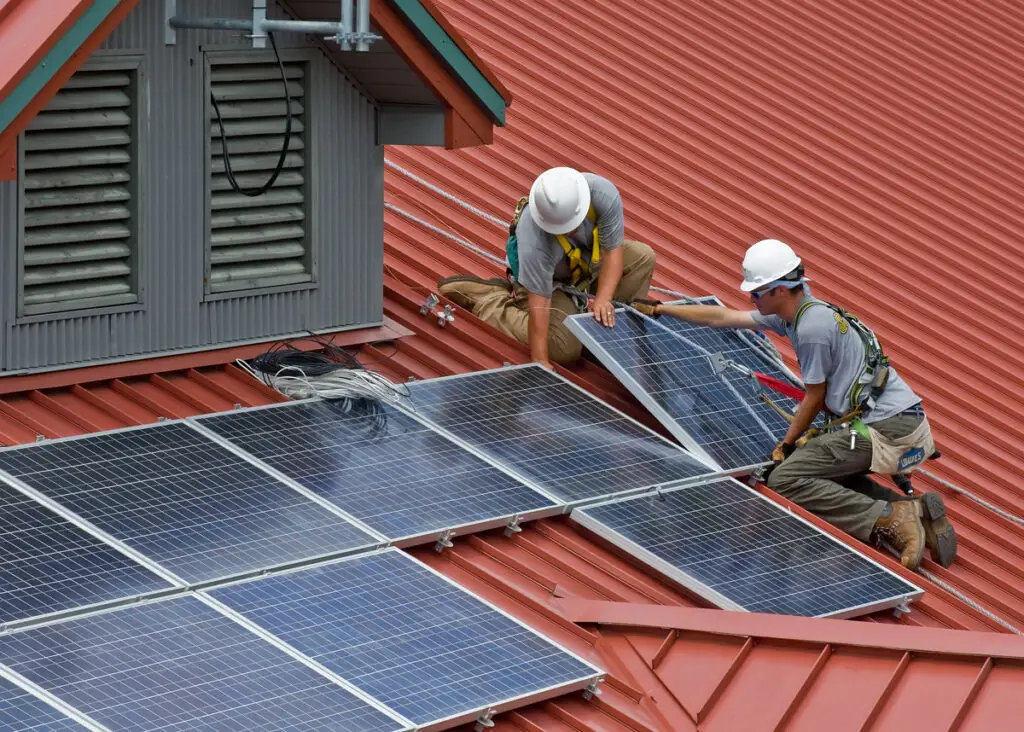
Solar power is popular, but not every HOA has caught up with the trend. Some require panels to be installed on the back of the house or in less visible areas. Skipping the approval process can be seen as a major violation. In some states, “solar access” laws override HOA bans, but not everywhere.
The concern is usually about aesthetics and uniformity. Panels on the front of a home might clash with the look the HOA wants to maintain. In some cases, placement restrictions can reduce efficiency, which creates tension between homeowners and the board. It’s a good idea to research both state law and HOA rules before you commit.
13. Large Animal Enclosures

Keeping chickens, goats, or other livestock in your yard might seem charming, but many HOAs forbid it. Even large dog runs can be subject to size and placement rules. Building an enclosure without permission can land you in violation territory quickly. Repeated defiance can put you at risk of eviction.
The main issues are noise, odor, and the potential to attract pests. HOAs also worry about how such structures look from the street. Some communities make exceptions for small animals or certain breeds, but the process is formal. If you’re dreaming of backyard hens, clear it with your HOA first.
14. Unapproved Driveway Expansions
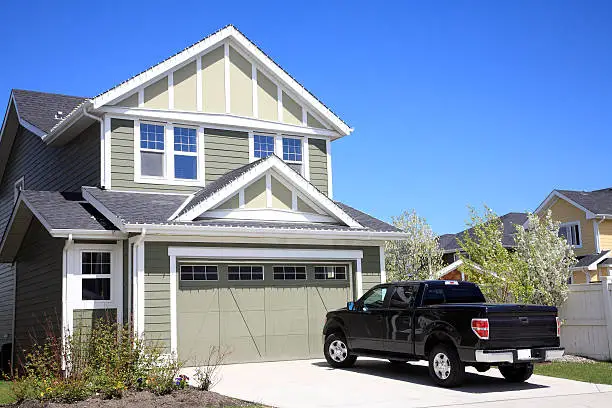
Adding extra parking space might feel practical, but changing your driveway without permission is risky. HOAs often have strict standards for width, materials, and placement. An unapproved expansion can violate both community rules and local zoning laws. If you ignore removal orders, eviction could become a last resort.
Driveways impact the overall look and traffic flow in a neighborhood. Too much pavement can also cause drainage issues, which the HOA may have to fix. Some associations only allow certain paving stones or colors. Before you start pouring concrete, make sure your plan is approved in writing.
This post 14 Outdoor Features That Could Be Grounds for Eviction in Tight HOAs was first published on Greenhouse Black.
